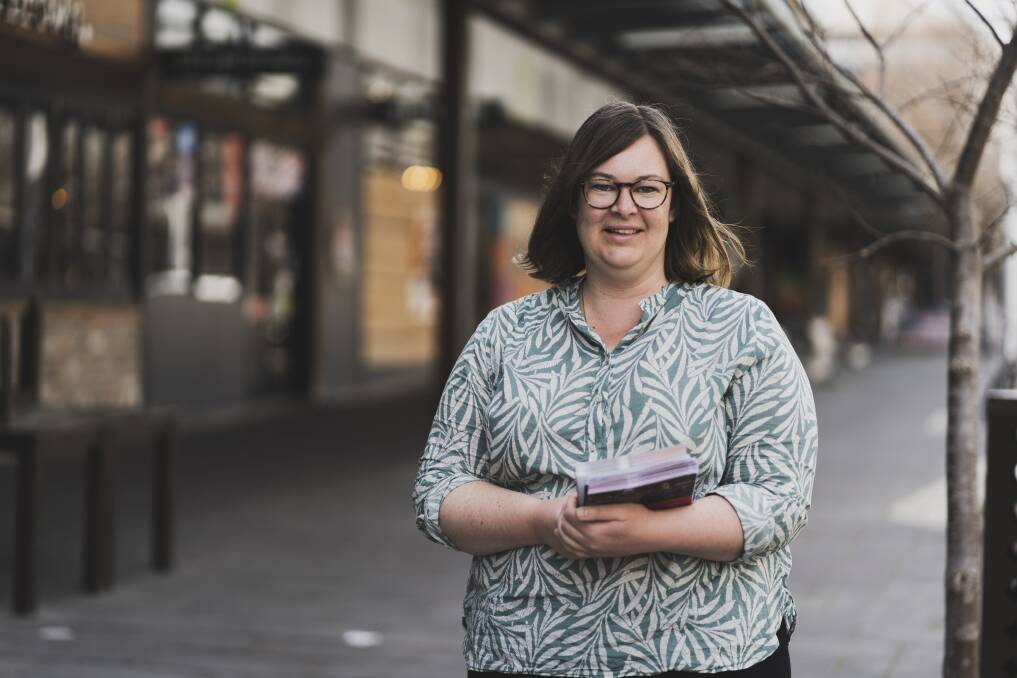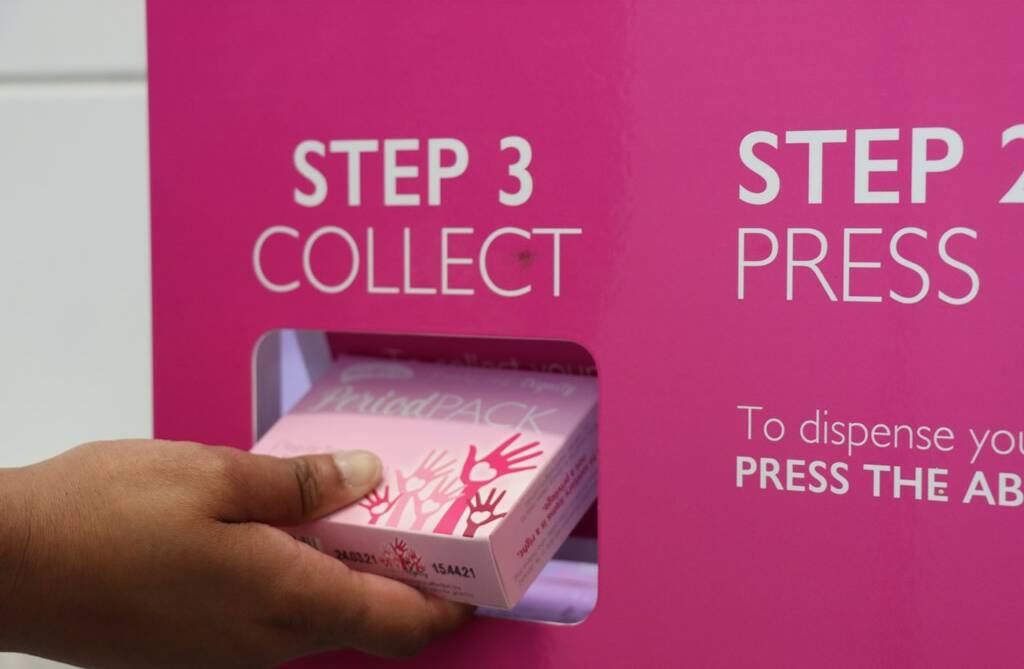Canberra residents could soon have access to free period products under a Bill introduced to the ACT parliament on August 4.
Efforts to address period poverty were playing out across the nation, with the rollout of free period products having started in public schools in NSW and Queensland, in line with other states.
Women's advocates say the move will be a step towards easing period poverty, but there was still more that could be done.

Founder of women's charity, Share the Dignity, Rochelle Courtenay, has been working to tackle period poverty in Australia since 2015.
Ms Courtenay said the current roll-out of sanitary products in schools across Australia would ensure girls weren't missing out on their education because their families couldn't afford period products.
What's happening around Australia?
Labor MP Suzanne Orr introduced the Period Products and Facilities (Access) Bill to the ACT parliament on August 4, which if passed, would ensure the government provided period products for free at accessible places across the territory.
Victoria led the way in 2020 as the first state to introduce free period products in schools, and most Australian states and territories have followed.
"We're ensuring all girls in our public schools have access to pads and tampons when they need them, so they can focus on their studies," Minister for Women Gabrielle Williams said at the time.
In 2021, SA pledged $450,000 over the next three years to fund free pads and tampons in all public schools.
In March, the NSW Government revealed a $30 million plan to introduce free period products in every public school, and Queensland followed, partnering with Share the Dignity in June.
"We've already rolled out 62 machines in Queensland schools and the feedback has been phenomenal," Ms Courtenay said.
But WA was lagging behind in addressing period poverty, forcing charities to step in, advocates say.
"There is a big void in WA; Share the Dignitary is holding the big load there," Ms Courtenay said.

What is Period Poverty?
Period poverty is the lack of access to period products, education and facilities, according to Share the Dignity, and can impact women's health, ability to receive an education and other factors.
Research released last year by feminine hygiene company Kimberly Clarke found more than a quarter of students surveyed had missed school because they did not have access to period products.
Research from Share the Dignity also revealed more than one in five people who menstruate were forced to use toilet paper, socks and other improvised period products to save money.
By introducing free period products in schools and increasing school education for boys and girls around periods, women's advocates hope to eliminate period poverty.
"There should never be a girl who misses a day of education because her family can't afford [period products]," Ms Courtenay said.
Despite this, efforts to aid period poverty are held back by a lingering stigma and taboo around menstruation, Labor MP Suzanne Orr said.
"Period poverty is quite pervasive across our community," she said.
"Because of the stigma and taboo around periods, we don't actually have the open conversations we need to be having," she said.
IN OTHER NEWS
'Education is a must'
Share the Dignity's partnership with the Queensland Government isn't just about giving girls the supplies they need, it's also about educating young people, Ms Courtenay said.
All Queensland schools have access to the Period Talk education program, which is designed to educate students in Year 5 to Year 8 about menstruation and the impact of periods.
She said educating boys is just as important as educating girls, and it all plays a part in reducing the stigma.


